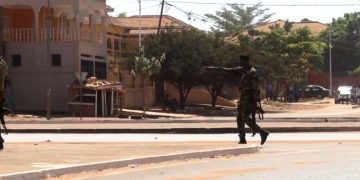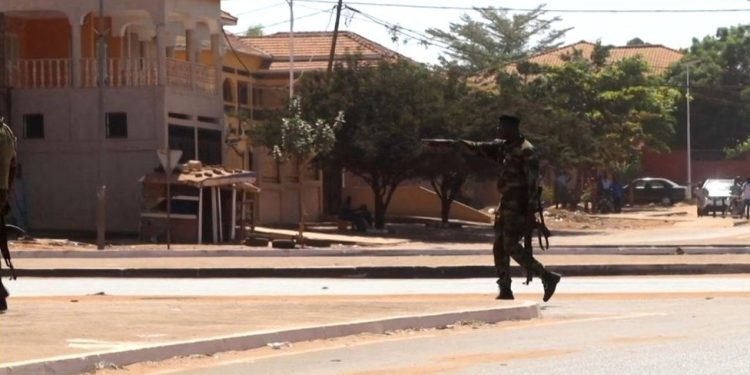The president of Guinea-Bissau has said he survived a coup attempt after being under heavy gunfire for five hours.
Umaro Cissoko Embaló said the attackers tried to kill him and his entire cabinet at the government palace.
He said many others had been killed in the fighting on both sides. Local media reported at least six deaths – four attackers and two guards.
The attackers were linked to drug trafficking in the country, he said, without providing further details.
Gunfire erupted near government buildings on Tuesday in the capital of the West African nation, where the president was attending a cabinet meeting.
A security source, who did not want to be identified, told the BBC that gunmen in civilian clothes had opened fire and a police officer had been killed. Some initial reports also said that the cabinet had been captured.
Embaló, however, said the attackers failed to break into the cabinet meeting.
“What I can guarantee is that the situation is under control,” he said.
Guinea-Bissau, with a population of just under two million people, is one of the poorest countries in the world. The former Portuguese colony has seen nine coups or attempted coups since 1980.
Guinea-Bissau: The ‘narco-state’ trying to kick its drug habit
Struggling with a massive foreign debt and an economy that relies heavily on foreign aid, the country has also become a transit point for Latin American drugs, leading it to be dubbed by some as Africa’s first narco-state.
Mr Embaló said the attackers were an isolated group, and that they were linked to drugs in the country.
Umaro Sissoco Embaló, a former army chief, was elected president in 2019
“When I was elected president of the republic, I promised to [fight] two things: corruption and drug trafficking. And this is also linked to that, and I knew what the price was, but the fight continues,” he said.
West African regional leaders described the incident as a coup attempt and urged troops to return to barracks.
Mr Embaló, a former army chief, won the December 2019 presidential election – but he faced a last-minute stand-off with parliament before taking office the following February. BBC










